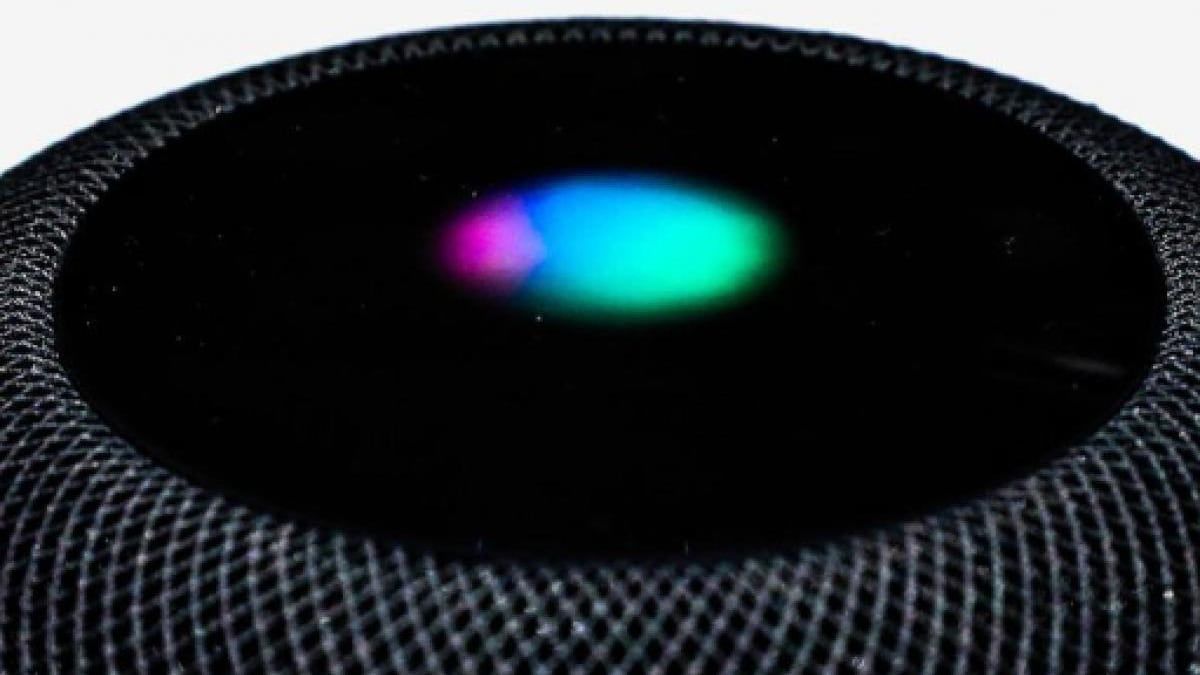Apple readies launch of HomePod Mini, Airpods Studio headphones
Apple pulls rival speakers and headphones from its stores to make way for over-ear headphones and a smaller HomePod.

Apple has stopped selling headphones and wireless speakers from rivals including Bose, Sonos and Logitech as the company gears up to launch its own new audio products, potentially alongside the debut of next-generation iPhone 12 series on October 14.
The technology giant has long sold third-party hardware on its website, one of the largest e-commerce operations in the world.
All headphones and speakers from Bose, speakers from Logitech’s Ultimate Ears brand and Sonos’s latest smart speaker disappeared from Apple’s online store at the end of last month, according to checks by Bloomberg.
Employees at Apple’s physical retail locations were also instructed to remove the products for sale at stores in recent days.
Clearing the decks
Apple has cleared its digital and physical retail shelves before to make way for its own new products. In 2014, it stopped selling Fitbit wearables soon after announcing the Apple Watch.
The company pulled Bowers & Wilkins products a few years ago and removed Bang & Olufsen devices from store shelves earlier this year.
Apple said it regularly makes changes to the products it sells as new third-party accessories are released and the needs of customers change. It also said its stores continue to sell a curated group of third-party accessories to help customers get the most out of Apple devices.
Bose confirmed Apple no longer sells its accessories. Ultimate Ears said it was told by Apple that “they will no longer carry third-party speakers at retail from September onwards.” Sonos referred comments to Apple.
The moves come as Apple develops multiple new products to expand on its audio strategy, including the first Apple-branded over-ear headphones and a smaller version of its HomePod smart speaker.
AirPod Studio noise-cancelling headphones
Said to carry the AirPod Studio brand, the headphones would extend the noise-cancelling technology and 'transparency mode' of the current Airpods Pro earbuds into a more conventional over-ear model.
According to people familiar with the project, these could arrive in a 'premium version' with leather-like materials as well as a 'fitness version' using lighter and more breathable materials. Both the ear pads and the headband padding would be interchangeable, similar to the modular design of the Apple Watch.
It's also said that a sensor in each earcup will detect if it's sitting over your left or right ear, and then automatically route the appropriate audio channel – so you won't even need to look for those L or R symbols before slipping the headphones on.
A companion MacOS and iOS app would unlock custom equaliser settings for low, medium, and high frequency adjustments.
As with the AirPods and AirPods Pro, the AirPods Studios would feature effortless wireless pairing with Apple laptops, smartphones and tablets, with Siri taking the helm for voice control.
Headphones targetting the top of the market would replicate Apple’s approach with the HomePod speaker, which has received glowing reviews for its sound quality.
HomePod Mini?
Meanwhile, the smaller HomePod will help Apple renew its push into the smart home at a lower price, albeit with fewer speakers inside the device than the current model.
The new HomePod speaker is believed to be about half the size of the original, while keeping a similar design and a lower price tag.
Offering it at a lower price will help Apple better compete with cheap smart speakers from Amazon. and Google, which currently dominate the U.S. market. The HomePod has largely been seen as a failure in terms of sales, though its superior sound quality remains a competitive advantage.
Beyond price, the HomePod’s comparative lack of success has also been driven by its narrower compatibility with music streaming services and smart home products as well as the limited functionality of Apple’s voice assistant, Siri.
The company has been acquiring AI startups to help it bolster Siri, is hiring a team to revamp its smart home efforts and plans to add additional music services to the HomePod, including its top streaming rival Spotify, after criticism the company provides an unfair advantage to its in-house products.
Currently, Apple Music is the default music app. Keeping users tethered to Apple’s services is important to the company as the growth of smartphone demand slows and sales of music, video, cloud storage and other subscriptions make up a greater share of the iPhone maker’s total revenue.
If the company changes the arrangement, a user would be able to play music from Spotify or Pandora automatically when asking Siri for a song.
Tag, you're it
Also on the radar: so-called Apple Tags or Airtags that will let users track real-world objects like keys and wallets, according to people who’ve seen prototypes.
These would offer functionality much like gadgets already on the market like Tile trackers, people familiar with the product said.
It's expected that the thin, small, puck-shaped tags will be bundled with an Apple-designed leather sleeve and a keychain to attach it to objects.
Additional reporting by David Flynn
Hi Guest, join in the discussion on Apple readies launch of HomePod Mini, Airpods Studio headphones